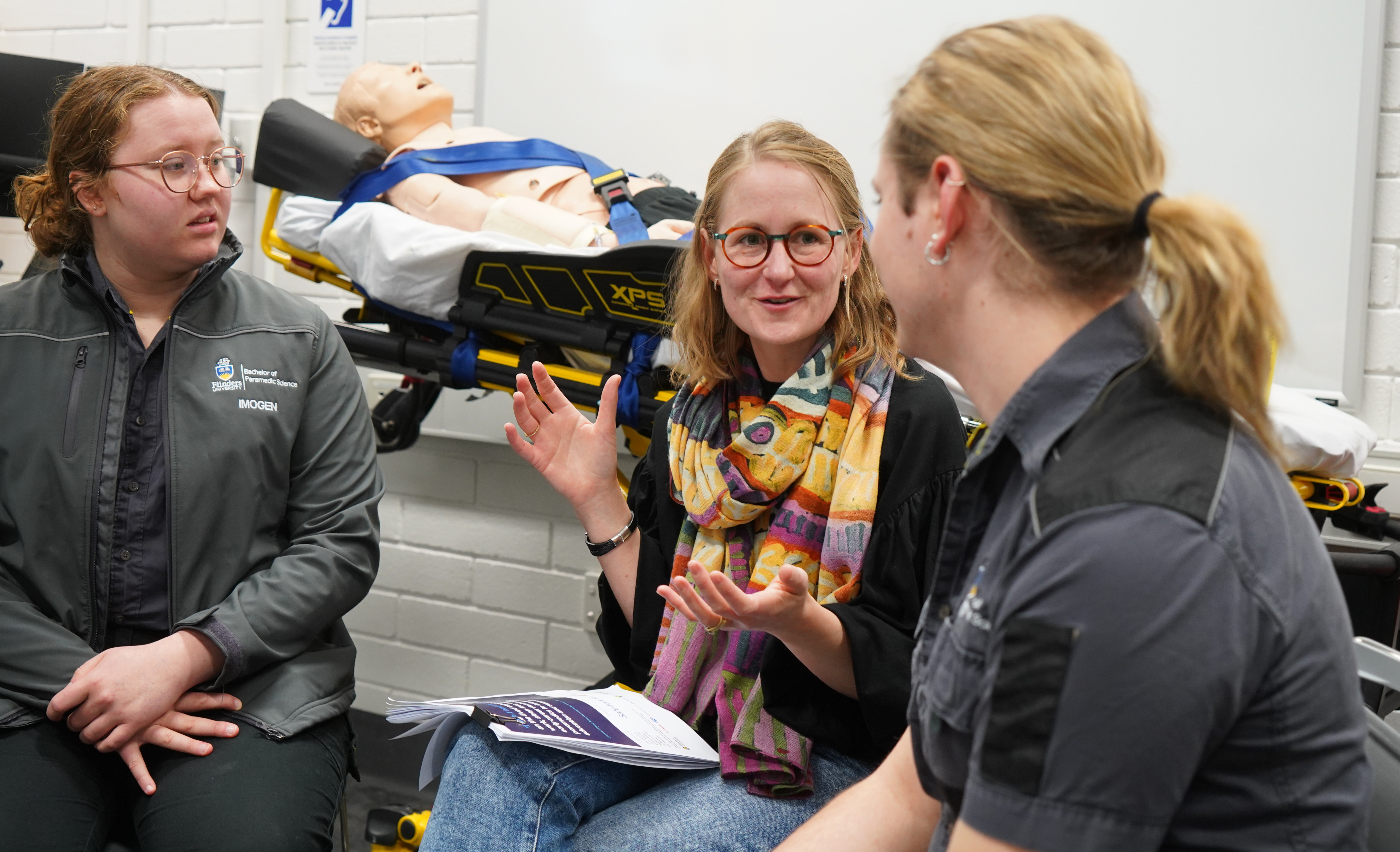
16 June 2023
Research into the impact of shift work has found that more education needs to be provided to early career paramedics on sleep problems and the potential safety hazards associated with around-the-clock rosters.
The Flinders Health and Medical Research Institute and Appleton Institute study was funded by SafeWork SA after winning an Augusta Zadow Award in 2021.
The ‘I Wish I had Known’ report was published in April 2023 and was based on a survey of 30 young paramedics from around Australia.
The paramedics had an average age of 30 years with participants having about 5 years’ experience in the field. Almost 90 per cent of those surveyed were currently assigned to shift work.
The study found the paramedics had limited knowledge about sleep health and sleep disorders, including where to obtain help for a sleep problem.
Sleep loss and fatigue were common factors associated with shift work and often led to emotional imbalance at work and at home, as well as perceived poorer clinical performance.
Lead researcher Associate Professor Amy Reynolds said shift work is an intrinsic component of paramedic work, and the impacts on sleep need to be an education and health services priority.
‘Overwhelmingly, these early career paramedics reported that they would have liked to receive more education regarding shift work and sleep health,’ she said.
‘They want to hear this information from other paramedics with lived experience as well as sleep health experts either before commencing shift work, or during early employment. They also want to know where to go for help with their sleep.’
For this project we were really interested in the experience of shift work, sleep loss and fatigue for early career paramedics.
Not just here in South Australia but around Australia. The idea here being we wanted to look for some solutions we know that this is a complex career, we know shift work is part of being a paramedic so how can we make that experience easier for the paramedics themselves.
We also really wanted to understand what we could do that would be positive. Something that we can do to start improving knowledge and understanding about what happens when we don't get enough sleep and when can we do that and how can we make that happen in a really positive way.
We couldn't have done this project without the funding from the Augusta Zadow award. What it allowed us to do was interview a really diverse group of paramedics from around Australia and allowed us to really get an understanding from the perspective of people who are living and working in these roles.
They were very appreciative that this work is being done and that someone was listening and that perhaps there are people out there who are finding ways to make their work life better.
Pots of money like this that are specifically for worker groups that might be underrepresented in research are so important. And certainly from our perspective in the sleep field and the shift work field, young workers are overlooked quite a lot. Let's get in early. Let's help people at the start of their working life so that they're not one of the two once they get to middle age that's trying to manage a sleep problem and still work and be a safe productive member of the workforce.
The study found that paramedics use a broad range of strategies to manage fatigue including coffee consumption, use of sleep medications, and maintaining good routines around their shift work.
It found that these strategies are currently largely learned on the job from mentors and peers, with most participants reporting that they received limited or no formal education on how to effectively manage shift work and fatigue.
Associate Professor Reynolds and her fellow researchers Associate Professor Anjum Naweed, Brandon Brown, Sian Wanstall, Meagan Crowther and Dr Tim Rayner received $10,000 through SafeWork SA’s Augusta Zadow Awards to fund the research.
Named after South Australia's 'First Lady Inspector of Factories', the annual SafeWork SA awards support initiatives, research or further education that improves health and safety for women and young workers in the state.
Applications for the 2023 Augusta Zadow Awards are now open at safework.sa.gov.au.
‘We couldn’t have got this project off the ground without the funding from the Augusta Zadow Awards,’ Associate Professor Reynolds said.
‘Next steps from this study will include publications which address the current knowledge gap in the literature regarding how shift work, fatigue, and sleep loss impacts Australian paramedic workplace performance and safety as well as personal wellbeing.
‘We also intend to utilise this knowledge to develop education and support toolkits for pre-service and early career Australian paramedics to better support health and safety during the transition into shift work.’


